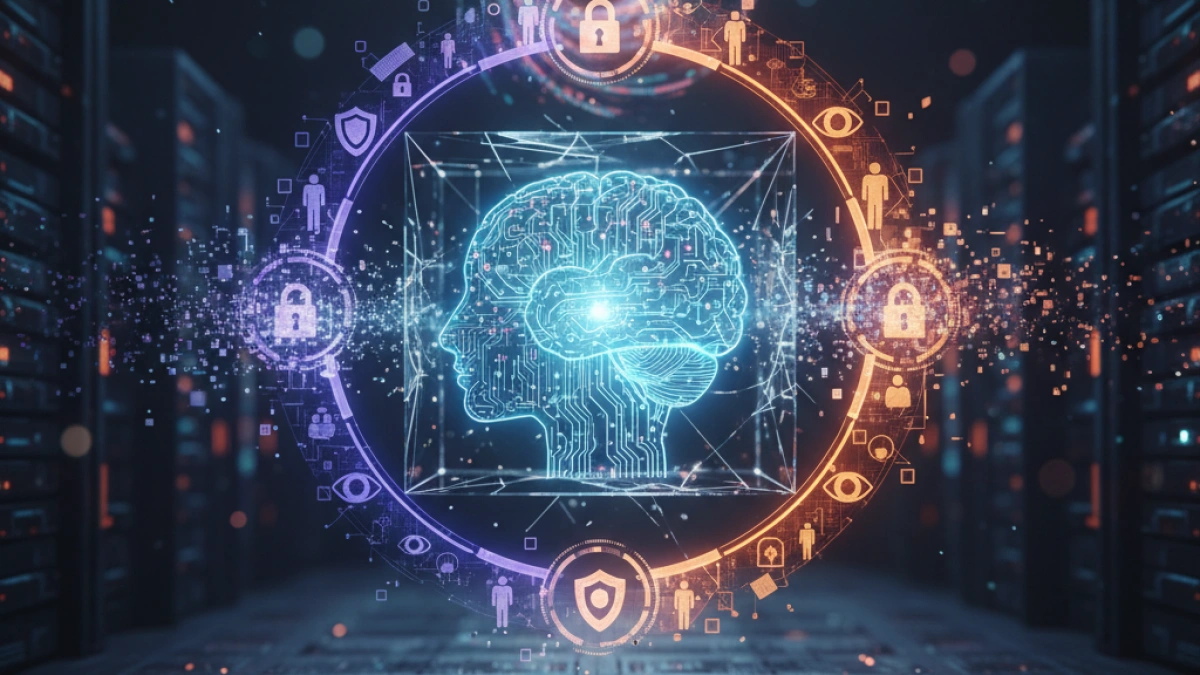ChatGPT Reveals Controversial Changes: Privacy and Security at Stake


In the dynamic world of artificial intelligence, ChatGPT, developed by OpenAI, once again finds itself at the center of controversy. The company has announced a series of significant changes to its platform, sparking intense debate about user privacy, security, and the protection of minors. These adjustments not only focus on enhancing the user experience but also reveal an ethical dilemma regarding the balance between individual freedom and collective security.
How Is AI Really Used?
To appreciate the magnitude of the proposed changes, it is crucial to understand the main purpose of using ChatGPT. According to recent data, writing is the most demanded function, occupying a predominant position over other uses such as programming, which barely represents 4%, or information search. Users primarily employ this technology to draft emails, edit texts, and generate summaries.
In contrast, platforms like those of Anthropic show different usage patterns, especially in the United States. There, the majority use these tools for computing and mathematics tasks, focusing on software developers. This difference highlights that the "how" and "for what" of artificial intelligence can vary considerably from platform to platform.
OpenAI and Its New Dilemma: Protecting Youth at the Expense of Privacy
In a global context marked by various concerns, Sam Altman, CEO of OpenAI, has outlined a new roadmap aimed at addressing the complexity of protecting younger users without compromising the freedom of adults. Below are the most relevant aspects of these changes:
Conditional Confidentiality
OpenAI intends to treat user conversations as confidential, similar to the relationship between a patient and their doctor or lawyer. The company is working on systems that prevent its own employees from accessing user data. However, there will be a series of exceptions under which information may be reviewed by humans, such as threats to life, violence, or serious cybersecurity incidents. This raises questions about who determines the gravity of a situation and how these threats will be classified.
Age Verification and User Segregation
One of the most controversial changes is the proposal to implement a system that can predict or estimate a user's age. The goal is to create a separation between those under 18 and adults. For younger users, strict rules will apply; for example, conversations about self-harm, suicide (even in fictional contexts), or with a flirtatious tone will be prohibited. Additionally, there will be considerations for informing parents or authorities if a minor suggests suicidal ideas. Depending on the country, even a form of identification may be required for age verification.
Freedom for Adults (with Nuances)
OpenAI has stated its intention to "treat adults like adults," implying that users over the age of majority should be able to request fictional content related to sensitive topics like suicide or engage in flirtatious language with the AI, as long as it does not involve real harm. However, the success of this freedom will depend on the accuracy of the age prediction system to avoid misclassifying an adult as a minor, a risk that poses serious concerns.
The Ghost of Total Control and the Loss of Privacy
Although the proposed changes may be seen as well-intentioned, they open the door to a troubling future where identification could become an almost universal requirement online. The idea of an automated system that "estimates" a user's age generates unease, reminiscent of similar experiences on platforms like YouTube, where results often turn out frustrating.
The promise of confidentiality is threatened by constant surveillance and possible human oversight over conversations. This new structure could become the perfect justification for governments and administrations to demand greater control over digital identity, potentially resulting in one of the most significant losses of privacy in recent history.
A Look at the Power of the Internet: The Case of Nepal
While the debate over control in centralized platforms continues, a recent event in Nepal illustrates the decentralized power of the internet. In this country, the government attempted to ban social media, prompting a strong reaction among the youth. The situation escalated to the point where, after the resignation of the government and military intervention, protesters organized through Discord gained influential momentum, even managing to have the military request a candidate for an interim government. This event demonstrated that, at times, attempts to control the internet result in a regrouping of power in unexpected places.
Conclusion: An Uncertain Future
OpenAI finds itself at a crossroads, trying to balance security with individual freedom. However, the solutions it is proposing raise more questions than answers, pushing us towards a more monitored digital landscape. The tension between privacy, freedom, and the protection of minors is a delicate balance that seems far from being resolved without generating significant ethical and legal conflicts. The question that arises is: are we willing to sacrifice our privacy in the name of security controlled by algorithms? The debate is set, and it continues to be relevant.
For more reflections on this topic and other interesting articles, feel free to keep exploring the blog.



















